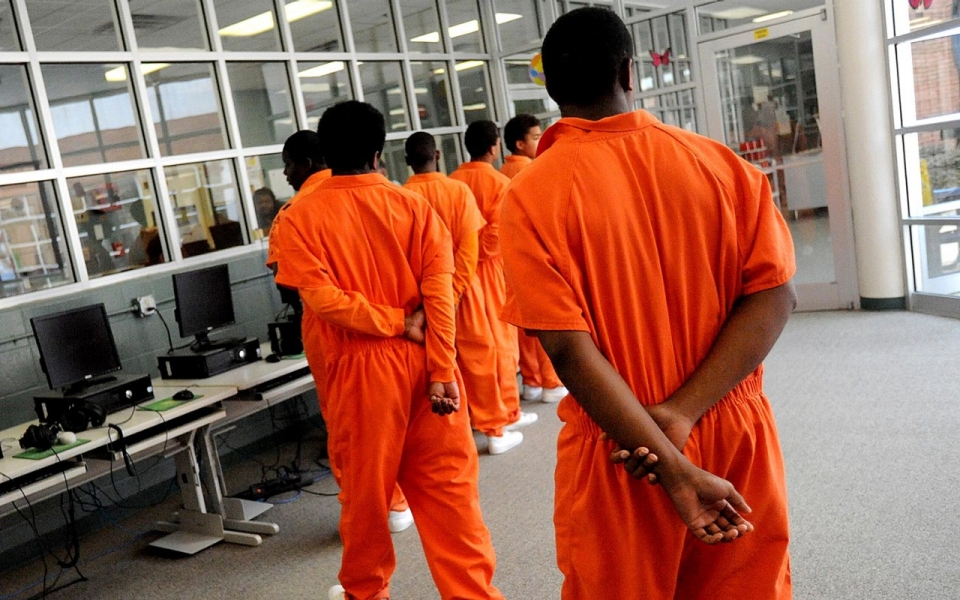
The woman deciding whether I should be admitted to the New Jersey bar seven years ago was “on the fence” about her decision because of a felony I committed 19 years earlier.
I was sixteen years old. One afternoon, I was hanging out with two friends after school. We were smoking. Our parents weren’t around. One friend was writing out checks and forging signatures. They asked me if I would cash the checks using my bank account. I regretfully agreed. Several weeks later, a police officer showed up at my job at the mall to arrest me. Unknown to me, the checks were stolen.
As a white female, being adjudicated delinquent didn’t cost me my childhood. I never had to go to jail. I was never exposed to life inside a jail, away from my family and support systems where my development as an adolescent would be impaired.
Because I was adjudicated as a juvenile delinquent, I never had to reveal my criminal record to anyone — until I applied to law school. I couldn’t remember the details of what happened nearly twenty years ago. I hadn’t had to think about that period of my life for a very long time. I had moved on.
To complete my law school applications, I had to find a copy of my juvenile record; I hadn’t kept a copy. I went to the police station where I was booked, but they no longer had information about my arrest. I went to the courthouse where my case was heard and was told my file was destroyed. Fortunately, a clerk was able to find basic information concerning the disposition of my case, and I was able to finish my law school applications. I was excited to receive several acceptance letters.
Education was my way out.
I already earned a Master’s degree in Chemistry and was working as a Research Scientist in New Jersey’s pharmaceutical industry when I applied to law school. I was an active member in my community. I had overcome the hardships life dealt me: a single parent household with a mother who worked long hours and earned low wages and was largely absent during my adolescence. She was bitter and resentful about her own life and had a substance abuse problem.
As law school graduation drew near, I became anxious as I remembered I would have to disclose my past again, this time to the New Jersey Board of Bar Examiners. I left a successful career as a scientist to go to law school full-time. I received school loans while in law school and applied for a private loan to study for the bar exam after graduation. More than three years after embarking on a new career, the Character Committee would decide whether I could obtain a license to practice law.
My fear pushed me to seek advice from a law school professor about my criminal record. He assured me that if they admitted me to the school, I likely would not have a problem getting my license. But it was not guaranteed. I was ashamed. I didn’t want to be labeled a criminal or to be judged based upon a mistake I made in my youth. I really thought I had moved beyond the troubles I faced as a teenager, but I still had a few things left to sort out.
Our society criminalizes people for being poor, for being Black, for being an immigrant. The list goes on and mostly comprises things out of one’s control. At the time, I feared going to jail, but I also feared who I would become if I continued down the path I was going as a teenager. I feared what my mother and my guidance counselor had already decided about me: That I was stupid and would do nothing with my life. That I wasn’t worthy of an opportunity to do better. I didn’t have to go to law school, but in choosing to do so, I chose to reveal my past.
At that point, I realized I had been able to escape society’s judgment for decades.
In New Jersey, most young people are in jail for nonviolent offenses. The vast majority are males. Black youth are 30 times more likely to be incarcerated than their white peers, even when charged with similar offenses. New Jersey has the worst racial disparity in the United States: Black youth make up 73% of those incarcerated but only 14% of the population.
I was right to fear going to jail. While in detention, youth lose access to educational opportunities, develop higher rates of mental health diseases and disorders, and are more likely to become involved in the criminal legal system in the future. Young people caught in this cycle often become victims of sexual abuse, causing further trauma and its consequences.
I never had to re-enter society.
Studies show that upon release from detention, the majority of youth do not go back to school and are not employed. Many are homeless or in unstable housing situations. They have a higher rate of substance abuse. If they are employed, they are in low earning jobs because of insufficient academic preparation and employment history. Youth end up with more damage and trauma than when they started their sentence.
Committing young people to facilities that are not prepared to handle their developmental needs is costly and ineffective against recidivism. New Jersey spends almost $300,000 per year to incarcerate a single young person, yet more than 80% of youth released from jail become involved in the criminal legal system again within three years. Putting children in jail does not work. It harms children and makes them offend again. New Jersey must stop spending an inordinate amount of money on incarcerating young people in a broken system and spend more on community based programs that keep them out of jail. All children deserve to grow up with their families.
My childhood was not ruined by incarceration.
My privilege kept me disconnected from my personal experiences as a youth. Prior to law school, I had mostly forgotten about being adjudicated delinquent because I had the ability to do so. I didn’t have to suffer the consequences of being in jail and separated from my family. I never had to disclose my juvenile record to anyone because it happened when I was a minor, and the prosecutor did not push to have me tried as an adult. Throughout my life, others gave me the benefit of the doubt because I am white. When I graduated high school, the local police department awarded me a scholarship. I went to college, graduated, and kept going. I didn’t look back at what I had been through as a young person and nothing forced me to. It was only when I became successful and economically stable that I began reflecting inward and eventually decided to go to law school.
Getting in trouble as a teen was a big part of why I wanted to become an attorney, but subconsciously, I feared it would define me. Prior to graduation, I planned to advocate for workers’ rights due to my working-class roots. When I graduated, I had a difficult time finding a public interest job, and ended up being employed at a nonprofit where I represented youth in immigration cases. Perhaps it was divine intervention. I felt a real connection working with young people, especially with those involved in the juvenile legal system. I discovered my passion is advocating for kids who are criminalized by society and labeled delinquent. I believe in them and urge others to do the same.
New Jersey must transform its broken juvenile legal system.
I’m not exactly sure what made the woman decide to approve my bar application. Perhaps she was able to empathize with me because I am white and female. Perhaps she erroneously thought I had pulled myself “up by my bootstraps,” one of the biggest myths in the United States. I believe that my acceptance had a lot to do with people seeing me as a human throughout my life because I’m white. I believe that this prevented my incarceration and helped me overcome my troubles as a youth. Black and brown youth need to be treated similarly.
What if I had been incarcerated? Where would I be now? Would I have gone to college? Would I be an attorney? I will never know, but I am grateful I never experienced imprisonment. No young person should ever be incarcerated.
Closure of youth prisons is just the beginning. New Jersey must transform its broken juvenile legal system, not build smaller youth prisons. Money must be reinvested in community-based programs. If construction of a youth rehabilitation center is absolutely necessary, the centers should be holistic, child-centered, treatment-focused, replete with wrap-around services in settings that offer real rehabilitation for young people, accessibility for families to ensure continuous family engagement, staffed with public workers trained in youth development, and should provide culturally sensitive, developmentally-appropriate, and trauma-informed care.

Kimberly Krone is an immigration attorney who has been representing children and youth throughout her legal career, working at several nonprofits in New Jersey. Kimberly is a graduate of Seton Hall School of Law where she was the Center for Social Justice Scholar within the International Human Rights/Rule of Law Initiative. She is admitted to practice law in New Jersey and New York and is fluent in English and Spanish.




